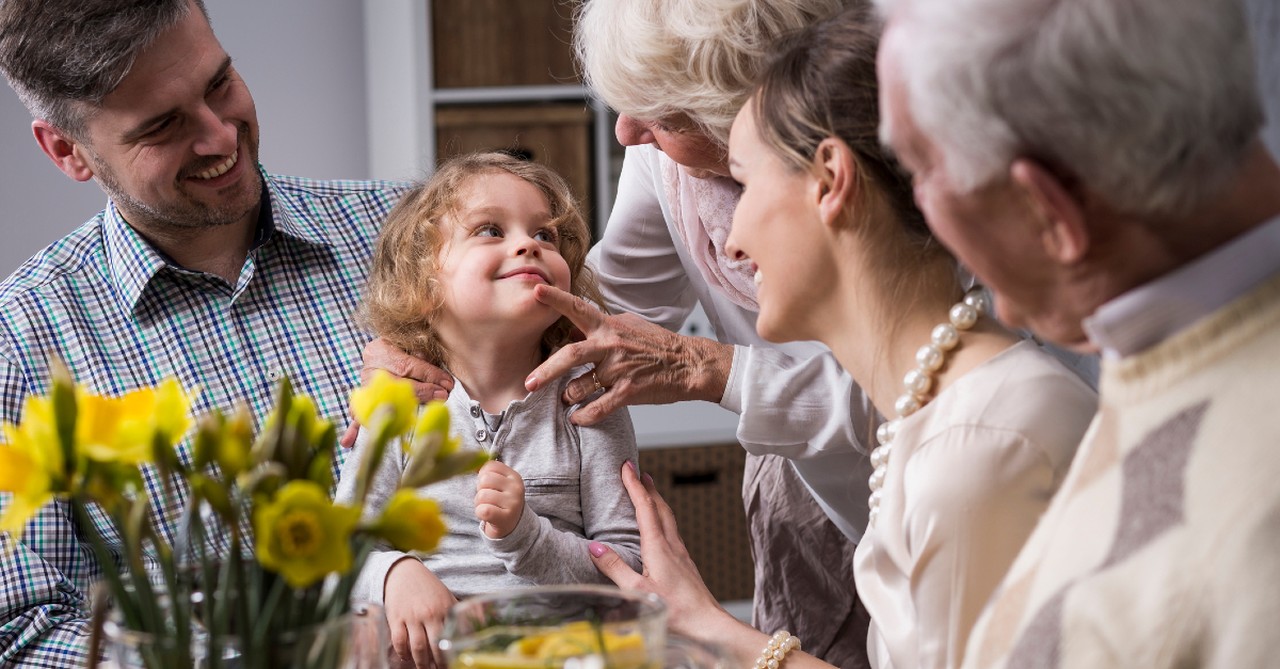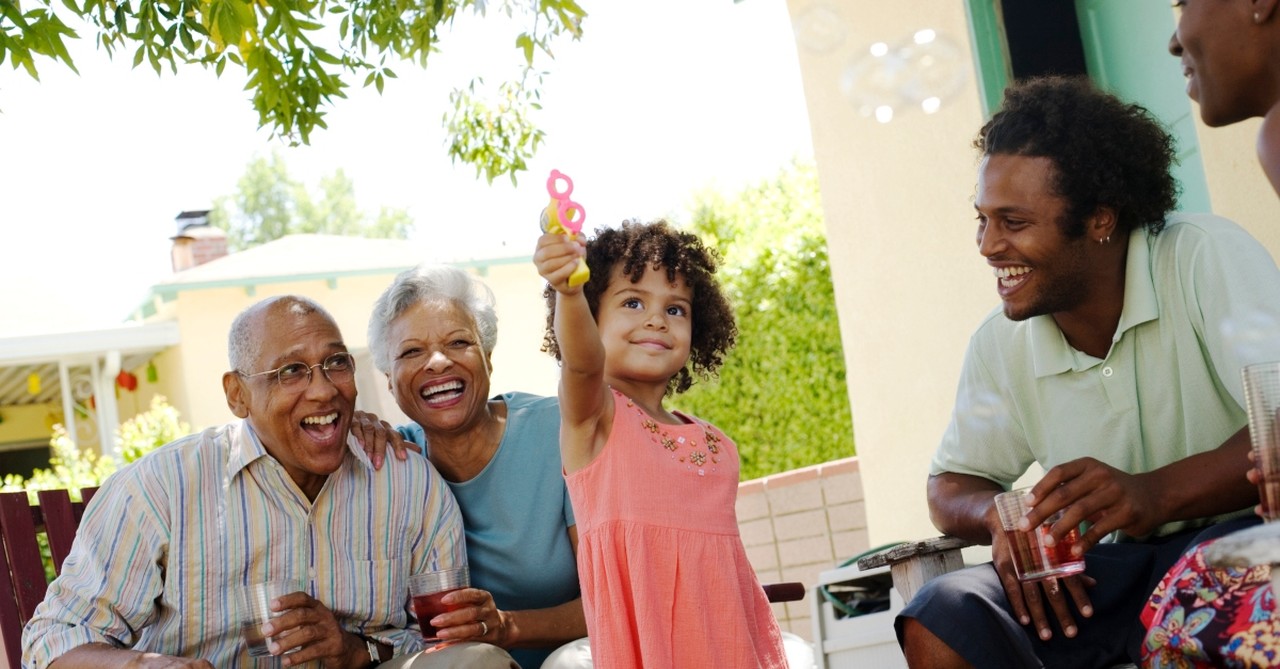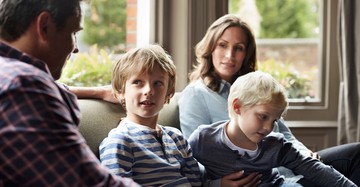8 Reasons to Respect Your Kids’ Boundaries with Your Grandchildren

I’m a new grandparent. While I revel in all the cuteness, I’m learning there are necessary and complicated boundaries about grandparenting, which are really an extension of the boundaries for parenting adult children. Grandparent guidelines, like in-law guidelines, are healthy and helpful when they are based on Scriptural context.
As we age, we become passionate about leaving a biblical legacy for the next generations of our kids and grandkids. With our accumulated experience, we have wisdom to impart, but do our children and grandchildren want to hear it?
How do you decide what to say and what to do with your grandkids? How can you practice respect for your children’s rules and still influence your grandchildren the way God intended grandparents to do?
Here are eight reasons to respect your kids’ boundaries for your grandchildren. By showing respect for your children’s parenting—whether you agree or not—you can forge a path to influence for your grandkids for Jesus.
1. Your grandchildren are learning respect for their parents by watching your respect for their parents.
Yes, they’re also learning respect by watching how their parents treat you. As the grandparents, you have the joy and responsibility to be an example “in word and deed” (Colossians 3:17) to two generations. When you ask your children about their rules for the grandkids, you reinforce to your grandchildren that these rules are important and must be followed. You’re modeling for the children that their parents deserve respect and obedience. If you see something that concerns you, or you disagree over a decision, you should bring it up to your kids in private, but not in front of the children, because that undermines your kids’ authority as parents.
If you don’t have a relationship where you can talk to your kids about their parenting, just pray about your concerns. Parenting is their responsibility; your responsibility now is to unconditionally love your kids and your grandkids and guide them toward the Lord. “Love is patient, love is kind. It does not envy, it does not boast, it is not proud. It does not dishonor others, it is not self-seeking, it is not easily angered, it keeps no record of wrongs” (1 Corinthians 13:4-5).
Photo Credit: ©GettyImages/skynesher
2. You kids are the ultimate authority over your grandkids.

2. You kids are the ultimate authority over your grandkids.
SLIDE 1 OF 4
Whether you did a good job parenting or not, the season of you raising your kids is over; now it’s your adult kids’ turn to make parental decisions. If you have a kind and respectful relationship with your children, they will seek your advice or discuss their process with you, and you won’t need to butt in with your opinions. But if you struggle to keep your opinions to yourself, remember your grandkids belong first to your children.
Within the family dynamic (both church family and actual family), the Apostle Paul addressed relational problems by commanding the Ephesians to respect one another equally. There is no hierarchy in the kingdom of God, which means fear, intimidation, manipulation, or judgment are not acceptable tools for conducting a relationship. Grandparenting is not a place for reverse psychology. “Submit to one another out of reverence for Christ” (Ephesians 5:21).
3. You must listen and understand before you share your perspectives.
If you struggle to communicate and agree with your adult kids’ philosophies and opinions, it’s not too late to practice listening skills. Don’t assume you know what they’re going to say or that their opinion is wrong. Ask why? and what if? questions. The world in which we live is more complicated and nuanced than it was a few decades ago when we were parenting our young children. “Take note of this: Everyone should be quick to listen, slow to speak and slow to become angry, because human anger does not produce the righteousness that God desires” (James 1:21).
If your communication with your adult children involves telling them what to do or what they’re doing wrong, your kids will not ask for your wisdom, no matter how incredible it is. In fact, they will likely avoid conversations or become resistant to situations where they think you will give your opinion on their parenting. Keep the lines of communication open by making yourself a safe place for your children to process their parenting worries. “Do not judge, or you too will be judged. For in the same way you judge others, you will be judged, and with the measure you use, it will be measured to you” (Matthew 7:1-2).
Photo Credit: ©GettyImages/KatarzynaBialasiewicz
4. Your children are responsible for disciplining and punishing your grandkids, not you.

4. Your children are responsible for disciplining and punishing your grandkids, not you.
SLIDE 2 OF 4
You had to make the hard calls when your kids were growing up. The beauty of grandparenting is enjoying all the fun stuff without all the hard stuff, like sleepless nights, monitoring friendships, sickness, managing schedules, etc. Grandparents get to be the entertainers and ice cream-providers, and let the parents enforce bedtime and homework routines. You can certainly set boundaries at your house that differ from your kids’ house, but be careful not to revoke or override the parents’ rules without their consent (i.e., food, screen time, bedtime, friends). Changing fundamental boundaries will create chaos for your grandchildren, and your adult kids will feel disrespected. And never, ever use corporal punishment on your grandchildren.
If your kids want your help implementing boundaries and discipline, you can show them how to parent responsibly, but create a strategy for passing back the boundaries and punishment piece to the parents. You could also pay to get them professional help from a parenting expert. “Teach the older men to be temperate, worthy of respect, self-controlled, and sound in faith, in love and in endurance. Likewise, teach the older women to be reverent in the way they live, not to be slanderers or addicted to much wine, but to teach what is good. Then they can urge the younger women to love their husbands and children, to be self-controlled and pure, to be busy at home, to be kind” (Titus 2:2-4).
5. Your kids need your support and understanding concerning their parenting.
Have compassion on your children’s growth as parents. They are growing as parents, just like you are. None of us knows exactly what to do before we have to do it. Avoid saying “I told you so” when they refuse advice that blows up in their face. Most of us learn by making mistakes. An important part of parenting adults is giving them the grace to make mistakes and mature as the Lord leads them. “As a father has compassion on his children, so the Lord has compassion on those who fear him” (Psalm 103:13).
Photo Credit: ©GettyImages/imtmphoto
6. Your children and grandchildren benefit from a respectful perspective.

6. Your children and grandchildren benefit from a respectful perspective.
SLIDE 3 OF 4
Invest in the next generation by sowing wisdom, attention, and experience into your kids and grandkids’ lives. You don’t have to be a know-it-all or a teacher to pass on truth. Rather than buying lots of stuff for your grandchildren, model and share the value of intangible things that you do together, like traveling, game time, conversation, work, worship, and Scripture. Your spiritual, emotional, cultural, and economic investment in your kids and grandkids sets them up for success or failure.
Yes, your descendants could make poor decisions or squander any physical or spiritual inheritance that you leave them, but the sowing and reaping principle pervades Scripture. Never underestimate the power of your faithfulness over a person’s lifetime. “Your sons will take the place of your fathers; you will make them princes throughout the land. I will perpetuate your memory through all generations; therefore, the nations will praise you for ever and ever” (Psalm 45:16-17).
7. You are still discipling your kids, and now your grandkids.
Learn how to disciple well. Discipleship is a family principle. Jesus prepared the Church by empowering twelve disciples to live out the Kingdom in a family dynamic as joint heirs with Jesus. Discipleship is a parenting model of teaching, training, modeling, and investing in others for a harvest in the future. Parenting and grandparenting give us immediate joy and happiness, but the fruit of this kind of relationship is truly in the future. Make disciples of your children and grandchildren.
You don’t have to constantly teach your kids about the Bible; live out Jesus’ message of bringing the kingdom of heaven to earth. Keep growing in kindness and mission. Model what a Christ-follower does. Put Scripture into practice. “What good is it, my brothers and sisters, if someone claims to have faith but has no deeds? Can such faith save them? Suppose a brother or a sister is without clothes and daily food. If one of you says to them, ‘Go in peace; keep warm and well fed,’ but does nothing about their physical needs, what good is it? In the same way, faith by itself, if it is not accompanied by action, is dead” (James 2:14-17).
Photo Credit: ©GettyImages/Sam Edwards
8. You’re building trust with your children by being trustworthy.

8. You’re building trust with your children by being trustworthy.
SLIDE 4 OF 4
Grandparenting is often an avenue where grandparents can build or rebuild trust with their grown children by loving their grandchildren, respecting their children’s boundaries, and affirming their kids’ parenting. Embracing your role as a supportive grandparent demonstrates your trustworthiness. (Going behind your kids’ backs demonstrates your untrustworthiness.) By loving your grandchildren within the boundaries set by your kids, you create new avenues for your adult kids to feel loved, accepted, and encouraged, which strengthens mutual trust and respect.
In a family where distrust already exists, adults may use the grandchildren as collateral for manipulation or power plays. Do not resort to this tactic. Do not lavish material things or rewards on your children in exchange for more time with your grandkids, even if it seems to “work.” Manipulation destroys trust and objectifies the children. You build and rebuild trust by being trustworthy: be reliable, be helpful, be loving. Cling to the Lord and have hope that your trustworthiness will create trust with your kids. “May the God of all hope fill you with all joy and peace as you trust in him, so that you may overflow with hope by the power of the Spirit” (Romans 15:13).
*Note: There is one notable exception to the rule of respecting your children’s parenting, even when they’re making mistakes. The exception is abuse of any kind. If your kids are neglecting or endangering their own children emotionally or physically, you should pray about how and when to step in. Then step in.
First, do your homework. Verify what’s happening. Find out the legal ramifications. Second, talk to your kids about the problem and the need for protection. Maybe they are willing to do family counseling, get professional help, and take the kids to a therapist. But if your kids will not protect and care for your grandchildren in a significant way, you must step in. Depending on the situation, this could involve law enforcement. This kind of action will have huge ramifications on your children and grandchildren, so this decision should be made prudently, with spiritual oversight. You will need wisdom, counsel, and courage.
Do not overlook abuse because you’re afraid of losing your relationship with your kids or bringing shame on the family. Always prioritize the youngest, most at-risk people in your family; these are your grandchildren. “Defend the weak and the fatherless; uphold the cause of the poor and the oppressed. Rescue the weak and the needy; deliver them from the hand of the wicked” (Psalm 82:3-4). Throughout Scripture, God defends the powerless and holds the offenders responsible. Don’t allow yourself to fall into a co-dependent pattern with family members who abuse because you’re afraid to make things worse. Protect your grandchildren whenever they are in any kind of emotional, psychological, or physical jeopardy.
God provides the template for a loving family in the Trinity and through the Church of Christ. The human family unit and the family of God have a single purpose—and it’s not expensive vacations, social media followers, or a big bank account. Everyone’s purpose must be to glorify God and serve him forever. God desires for us to “live on earth as it is in heaven,” which means we were destined to live full of freedom, purpose, joy, and community. Forgiveness and belonging are not just possible—that’s God’s whole plan. “I am writing to you, fathers, because you know him who is from the beginning. I am writing to you, young men, because you have overcome the evil one” (1 John 2:13). Don’t disrespect your children because you want more influence as a grandparent, you want a second chance to get it right, or you want to earn the love of your grandchildren.
Prioritize the impact you have on future generations. Influence from a position of love.
Photo Credit: ©GettyImages/jacoblund

Originally published July 01, 2025.









